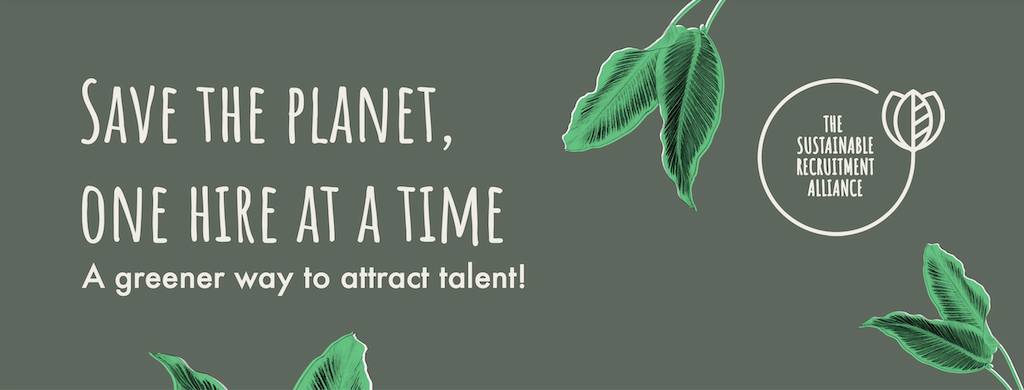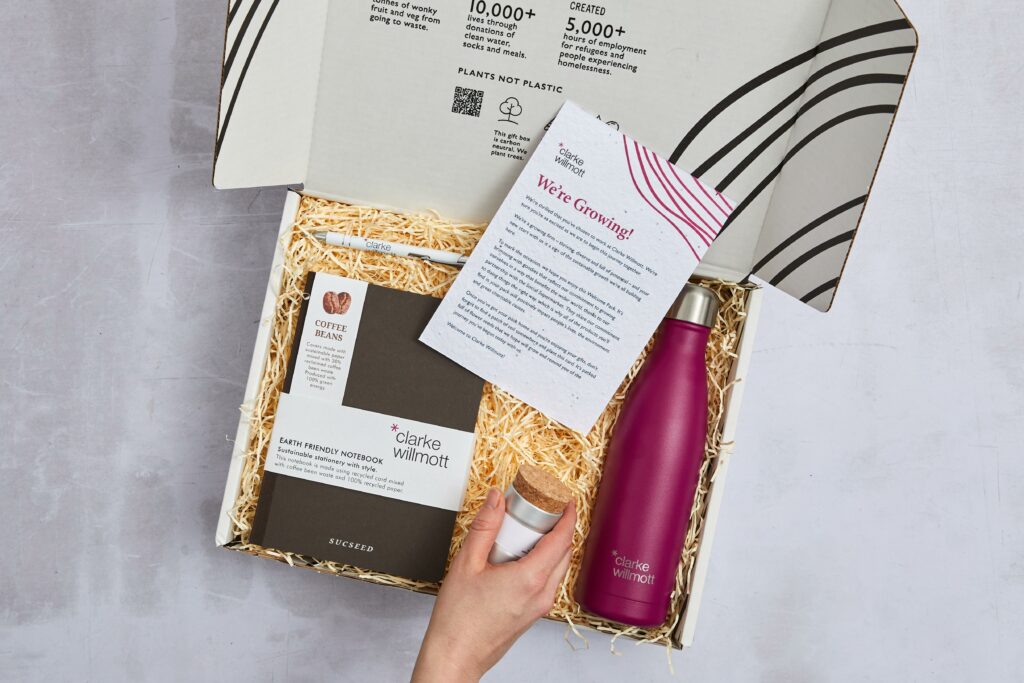The business of new joiners: An ethical recruitment guide
10/4/2024
Unconscious bias when reviewing applications, throwaway merch at recruitment days, a lack of reasonable adjustments at interviews – unethical practices can creep in at every step of the recruitment and onboarding process. In fact, these are often embedded into traditional recruitment strategies, whether by intentional or unintentional design.
Responsible businesses have a role to play in redesigning those strategies. Let’s swap outdated, unethical and unsustainable recruitment processes for those that work better for people, planet and business.
Here we guide you through why it’s so important to align your practices with your ESG goals and unpack tips for onboarding new joiners in the most ethical way possible, featuring insights from Sustainable Recruitment Alliance (SRA) founder Laura Yeates.
Why bother with ethical recruitment and onboarding?
Failing to eliminate discrimination and bias in your practices can impact candidate mental health and unconsciously lead to hiring people who are similar to your existing workforce. And since diverse teams have been found to be more productive and successful, it’s both the right thing to do and smart business sense to put in the work.
While a time saver, AI in recruitment has the potential to hinder your DEI efforts. In fact, the BBC recently reported that AI tools have been found to discriminate against highly qualified candidates on the basis of everything from age and gender to hobbies, depending on how they’ve been trained. This highlights the urgent need for a human touch to counteract bias when using these tools, in recruitment and elsewhere in business – something we dive deeper into here.
Then there’s the environmental impact of recruiting, notably from disposable, poor-quality freebies and travel miles. The lack of awareness and accountability from businesses on this environmental footprint inspired Laura to launch the SRA. “After nearly two decades in the early talent industry, I grew increasingly concerned with the amount of waste and unsustainable practices used by recruiters to attract candidates.”
“It seemed contradictory that an industry focused on finding top talent – who, we knew and verified through research, deeply cares about sustainability – appeared to overlook its own environmental impact. Our consumption in the name of attraction should be alarming, and it needs to change full-stop.”
Laura (pictured above) founded the SRA in 2020. As the climate crisis progresses, candidates’ desire to work for an employer that cares about sustainability and champions green values is only getting stronger. The SRA commissioned research with Cibyl (the largest of its kind, as it happens) showing that around 90% of early talent populations were found to believe their employers should take action on environmental sustainability.
Companies who don’t live up to expectations risk missing out on wider talent populations as well, as evidenced by a KPMG UK study in which 46% of respondents listed environmental impact as a key area they wanted employers to address.
Ethical onboarding checklist
Training for your hiring teams
Ethical recruitment starts with giving employees responsible for hiring the knowledge and skills to follow good practices and recognise harmful practices. Ongoing DEI training is critical, as well as keeping up with the law to ensure processes don’t just seem fair, but are legally sound.
For greener recruitment, Laura suggests sustainability literacy training to equip employees with strong environmental knowledge and awareness. This helps your team make well-informed choices as they plan and execute your strategy.
Be transparent
Transparency is the bedrock of building trust with candidates and new joiners, so get off on the right foot with an open and honest recruitment strategy.
Listing the salary is an absolute must. As the #ShowTheSalary campaign urges, salary transparency helps address pay gaps, shows respect for your candidates’ time and also gets you more – and better aligned – applicants. On the other hand, not including the salary makes negotiation harder for candidates, perpetuating pay gaps for women and people of colour in particular.
Be realistic in your job description too, giving a fair outline of the role’s responsibilities and challenges. Candidates also increasingly want to see your ESG commitments upfront: nearly three-quarters of the graduates surveyed by Prospects felt job adverts should include an employer’s sustainable policies.
A digital-first strategy
“Going green is about smarter and intentional sourcing, utilising reusable materials; and, if you’re using a digital-first strategy, it means investing in effective experience simulations or platforms to meaningfully engage with prospective candidates” says Laura.
Get thinking about what can be moved online during your recruiting and onboarding. That might be virtual assessment days or finding creative ways to keep training onsite, making the most of new technologies to enhance the experience. For instance, Accenture used VR to help their utility company client level up training. They’ve achieved an engaging, interactive, efficient programme without having to get out into the field.
Better branded merchandise
As we previously mentioned earlier, green values are a priority for job seekers of today. Deloitte reports that 50% of workers would take a pay cut to work at an environmentally friendly company, while KPMG found 20% had already turned down a job offer because of a lack of serious ESG commitments.
Most standard promotional products recruiters hand out are at odds with these values. Their throwaway, wasteful nature is evident in the fact they’re kept for just five months, according to AMA.
However, the right branded merch (read: sustainable) sends a reassuring first impression to potential candidates that you take environmental responsibility seriously and keeps you aligned to your values. It’s why Laura advises businesses to “be curious to ask more questions about where your stuff comes from. Then be empowered to utilise more sustainable alternatives.”
We help companies source alternatives to traditional branded merch that have longevity built in, as well as added good due to coming from social enterprises. Like branded reusable water bottles that raise money for charity, recycled pens made from meadow grass and a mini desk garden supporting sustainable travel projects for school kids.
You can even sweeten up new joiners with branded chocolate that champions fairer practices in the industry. Branded items like these often go into our clients’ onboarding gift boxes, to welcome colleagues into the team and introduce their values from day one.
Keep measuring, learning, growing
Like any business strategy, ethical recruitment and onboarding is an ongoing project to refine and adapt. Measuring your impact and results makes this possible.
When it comes to the environmental side, that means tracking everything from the travel miles of your employees and candidates, to the sustainability credentials of your branded merch suppliers. (By the way, our verification process and impact reporting takes care of the latter.)
For the DEI aspects, you need to be monitoring how your strategy is shaping your workforce. Is the makeup of your team staying much the same or diversifying? Knowing this will help you create plans to remove biases, better support employees and create a more diverse, inclusive culture.
The impact of ethical recruitment and onboarding
Speaking of measuring impact, what do the results from ethical recruitment look like? Laura’s got the intel from businesses who’ve put the effort in environmentally.
“We’ve seen great success stories from employers and love to promote their work through our case studies. One of our partners, RMP Enterprise, reviewed their standard campus recruitment campaigns which previously emitted around 3 tonnes of CO2e. After optimising digital outreach, scrutinising supply chains and implementing other eco-friendly tactics, they reduced emissions to just under 1 tonne.
“They then offset the remaining emissions to make the first ever net-zero brand ambassador campaign. Importantly, this sustainable approach drove stellar results with zero dropouts and many student hires.”
Research also shows that a great onboarding experience can improve retention by 82% – something communicating the impact of social enterprise welcome gifts can help with. New joiners are more likely to appreciate the values and stories behind these, generating positive attachment to their new role and company.
So it pays off: investing in an ethical, sustainable recruitment strategy will make your ESG claims more credible and win you great talent in the process.
Eager to deepen your commitment to ethical recruitment and onboarding? Speak to us about onboarding gifts



